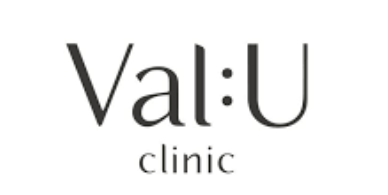Chin Botox in Korea, Seoul
myeongdong Val:u Clinic
Val:u Clinic Myeongdong, Seoul | Global Experts in Chin Botox
Chin Botox in Korea: Your Guide to a Smoother Jawline
Chin Botox is a popular procedure in Korea for those with a "cobblestone" chin caused by an overactive mentalis muscle. This treatment relaxes the muscle, smoothing out the dimpled texture and creating a more refined facial profile. It is a simple way to achieve a softer, more elegant lower face without surgery.
What Is Chin Botox?
Chin Botox involves injecting botulinum toxin into the mentalis muscle. When this muscle is overactive, it can cause a dimpled "orange peel" texture on the chin. The Botox temporarily weakens this muscle, which smoothes out the skin and gives the chin a more even appearance.
Popular Applications of Chin Botox in Korea
- Cobblestone Chin: Smooths out the dimpled texture.
- Mental Crease Reduction: Softens the horizontal crease between the lower lip and chin.
- Facial Contouring: Can be combined with jawline Botox or fillers for a more balanced profile.
- Preventative Treatment: Prevents the development of deep-set lines over time.
Why Choose Korea for Chin Botox?
Precision and Expertise
Doctors are skilled in targeting the mentalis muscle for natural-looking results.
Affordable Pricing
The treatment is offered at a competitive price.
Combination Treatments
Often combined with chin fillers for a more defined chin.
Quick and Convenient
The procedure is fast, with minimal downtime.
Typical Cost of Chin Botox in Korea
- Per session: ₩19,000–₩90,000+
- Combination with Chin Filler: Package deals are common.
Treatment Process Overview
- Consultation: A doctor confirms your concerns are due to the mentalis muscle.
- Procedure: A small amount of Botox is injected into a few points on the chin.
- Aftercare: No downtime is needed. The full effect is seen in 1-2 weeks.
Aftercare Tips
- Avoid lying down for at least 4 hours after the injection.
- Do not massage the treated area for 24-48 hours.
- Avoid strenuous exercise and saunas for 24 hours.
- Effects last 3-6 months.
Multilingual Clinics
Many Korean clinics offer English, Chinese, and Japanese-speaking staff to provide seamless communication and comfort for international patients.

